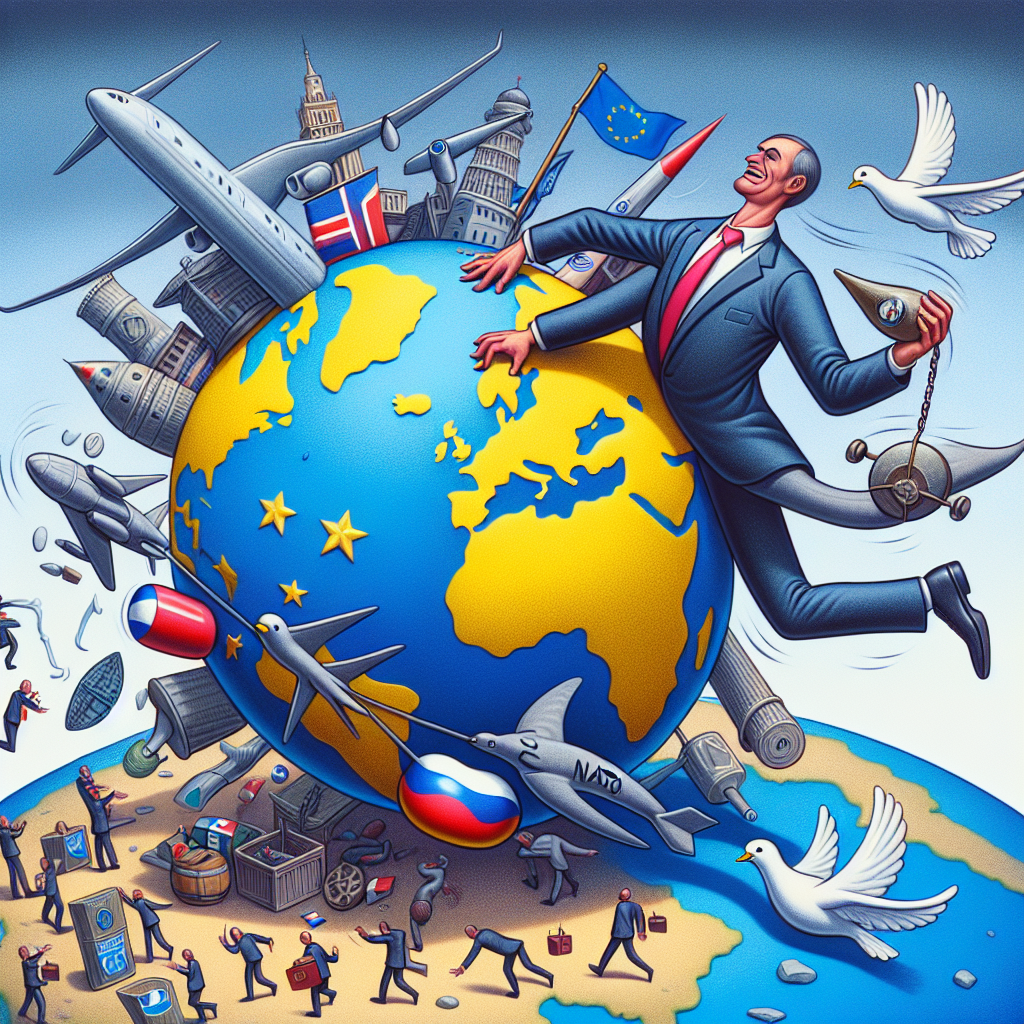The Quest for Peace: Trump's Diplomatic Endeavors in Ukraine

OH. MY. GOODNESS. WHERE DO I EVEN BEGIN WITH THIS ONE?
At first glance, the idea of diplomacy, especially from a controversial figure like Donald Trump, stepping into the fraught and devastating conflict in Ukraine might sound hopeful. A quest for peace? Who wouldn’t want that? But to suggest it’s straightforward, or that it has been handled with grace and sound strategy? PLEASE.
Let’s get this straight. Ukraine has been caught in a geopolitical nightmare for years, dealing with aggressive pushbacks to its sovereignty and a brutal war that costs countless lives daily. The international community has been working in fits and starts to broker peace and offer support. Into this scenario enters Trump, whose prior conduct on the global stage is, at best, unpredictable, and at worst, wildly erratic and self-serving.
Now, I’m not saying that one person’s involvement can’t have a positive impact—politics is full of surprises, after all. But the nature of this so-called "diplomatic endeavor" leaves much to be desired, and frankly, it demands scrutiny from every angle. We cannot allow ourselves to get swept away by hope without accountability, and we must not confuse theatrics for tangible progress.
First, let’s talk about *tone* and approach. Diplomacy, especially in a context as precarious as Eastern Europe, requires serious humility, deep expertise, and a commitment to long-term peace over short-term headlines. Unfortunately, the involvement that has come under Trump's banner has been accompanied by a carnival of mixed messages, unorthodox tactics, and public statements that have, more often than not, muddled the diplomatic waters rather than clarified them.
The quest for peace is not a reality show. It is an intricate, deliberate process that demands careful negotiation, trust-building, and respect for international norms. Yet, what seems to have overshadowed this entire so-called quest is a reliance on grandstanding and a knack for making promises that feel, frankly, disconnected from the on-the-ground realities in Ukraine.
And speaking of reality, we must consider the reactions of those directly affected by the conflict. Ukrainians, who are risking everything to defend their homeland, have expressed skepticism. Why? Because meaningful peace doesn’t come from flashy press conferences or cryptic tweets. It comes from sustained diplomatic pressure, collaborative efforts with allies, and a transparent strategy that acknowledges the complexity of regional security dynamics.
Moreover, Trump’s history with Ukraine-related issues casts a long shadow. The previous controversies involving Ukraine administration interactions have not inspired confidence that his diplomatic overtures are driven by altruism or genuine commitment to peace. Instead, critics argue, these moves often seem entangled with political self-interest and an appetite for spectacle.
It’s also worth noting the broader international context in which these endeavors are unfolding. Global powers like the EU, NATO, and even Russia itself are players with layered interests and stakes that cannot be easily swayed by unilateral gestures or impulsive rhetoric. A meaningful quest for peace must account for these complexities and engage them thoughtfully and respectfully.
That leads me to an essential point: peace is not just about stopping bullets or signing papers. Peace is about rebuilding shattered communities, restoring trust, and ensuring that diplomatic resolutions do not leave underlying issues festering. Any credible diplomatic effort focused on Ukraine must be comprehensive — addressing political autonomy, economic recovery, security guarantees, and human rights protections.
Unfortunately, the approach in question seems short on any of these crucial details, and long on spectacle and self-promotion. This leaves many observers asking if this is diplomacy or a demonstration of power and political theater designed for the cameras and headlines rather than for peace.
As someone who watches closely for the management of public discourse and accountability, I cannot understate the importance of holding every so-called “quest for peace” to the highest standard. International diplomacy deserves nothing less than rigorous scrutiny, sincere negotiations, and above all, humility. Anything less does a disservice to those at risk and erodes the integrity of peace-building efforts worldwide.
So here’s the bottom line: while the idea of a bold and decisive move toward peace in Ukraine might sound appealing, it’s crucial to move beyond the hype and drama. Evaluate the impact, the sincerity, and the substance — because without these, peace remains a distant dream rather than an achievable goal.
In this chaotic, high-stakes arena, we need clarity and steadfastness — not confusing tactics and noisy distractions. It’s absolutely imperative that the true architects of peace rise beyond showmanship and embrace the weighty responsibility that comes with striving for real, lasting resolution.
Until then, the quest should not be celebrated prematurely or uncritically. Instead, it should be monitored closely, discussed openly, and challenged whenever it falls short of the standards demanded by the gravity of the conflict and the lives affected.
And please, let’s keep the caps lock out of official statements and diplomacy. Because when it comes to peace, drama is exactly what we do NOT need.

